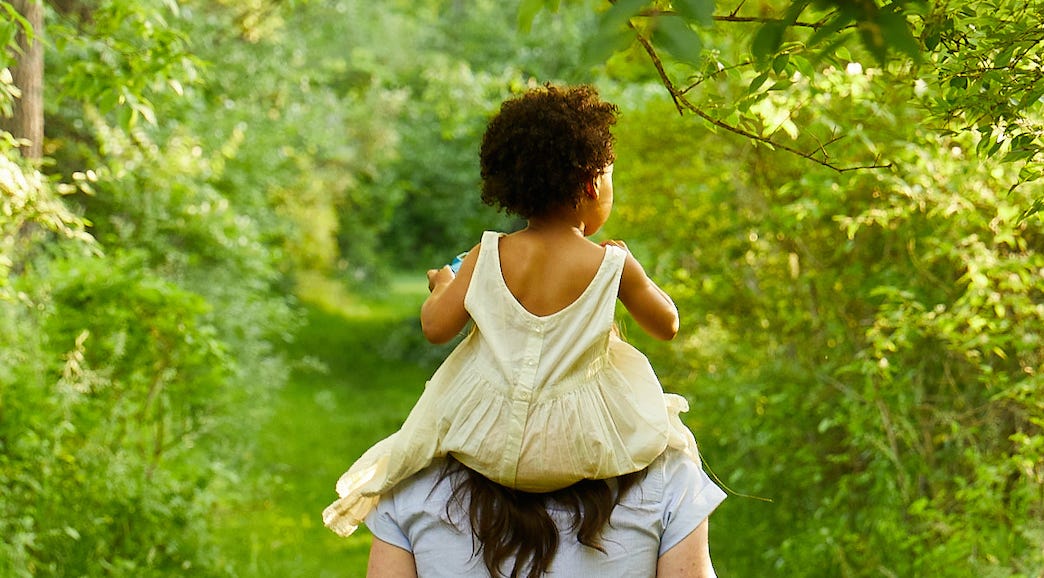We are two journalist moms writing about family issues from a feminist perspective. Research, interviews and personal stories connecting systemic issues and family life; also, 40+ mom humor. You can read past issues here. Click below to get this newsletter in your inbox, free.
I have never been a baby person per se, but I have always loved three-year olds. My daughter turned three a few months ago and she is totally delivering. She can be a handful, for sure, but she’s joyful, affectionate, and funny.
She uses phrases like “that’s impressive” and the occasional cuss word both correctly, and incorrectly, to hilarious effect. She thinks a tummy ache is called a “tummy egg.” She gives hugs to friends and strangers freely. She makes up her own rap rhymes, mostly about her stuffed animals and how much they love her.
She basically bounds through her tiny life giving love and expecting love. Three-year olds have a joy and innocence that you want to protect. Most of us who have loved a three-year old get a little heartbroken thinking about that innocence getting pierced, and this feeling is even sharper when it comes to black children and children of color in this country.
I knew that three was the age that children become aware of racial bias, but still, I wasn’t ready for it when my black biracial daughter recently started asking questions about her hair. She senses that it’s “different.” She’s trying to work out how, or what it means, but she’s unsure about it. “I want it like mermaid hair,” she says. “I want it long, like yours,” she says, pointing to my mop of wavy-straight white lady hair. My heart sinks and it feels like someone is squeezing it with both hands.
Keep reading with a 7-day free trial
Subscribe to Matriarchy Report to keep reading this post and get 7 days of free access to the full post archives.




